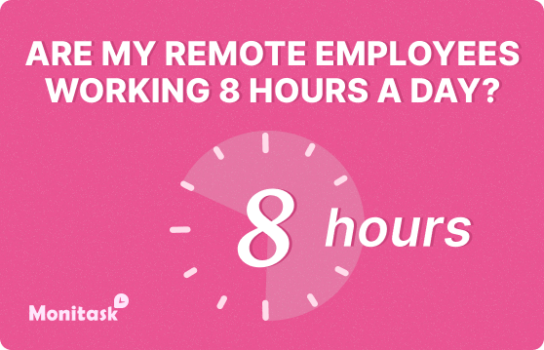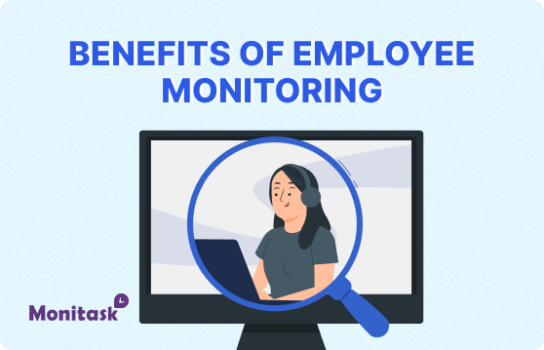Outsourcing HR
Understanding HR Outsourcing: A Comprehensive Guide
In today's fast-paced business world, companies are constantly seeking ways to streamline their operations and focus on core competencies. One strategy that has gained significant traction is HR outsourcing. This practice involves delegating various human resources functions to external service providers, allowing organizations to tap into specialized expertise while potentially reducing costs and improving efficiency.
HR outsourcing has evolved from a niche practice to a mainstream business strategy, with companies of all sizes and industries leveraging it to varying degrees. As we delve deeper into this topic, we'll explore the nuances, benefits, challenges, and best practices associated with outsourcing HR functions.
What Exactly is HR Outsourcing?
HR outsourcing refers to the practice of contracting out specific human resources functions to external service providers. These functions can range from administrative tasks like payroll processing and benefits administration to more strategic activities such as talent acquisition, performance management, and employee training and development.
The scope of HR outsourcing can vary widely depending on the organization's needs, size, and resources. Some companies may choose to outsource only a few specific HR tasks, while others might opt for a comprehensive outsourcing solution that covers nearly all HR functions.
Types of HR Outsourcing
There are several models of HR outsourcing that companies can choose from, depending on their specific needs and circumstances:
1. Business Process Outsourcing (BPO)
In this model, specific HR processes or functions are outsourced to a third-party provider. Common examples include payroll processing, benefits administration, and recruitment.
2. Professional Employer Organization (PEO)
A PEO becomes a co-employer of the company's workforce, taking on many of the HR responsibilities and liabilities. This model is particularly popular among small and medium-sized businesses.
3. Application Service Provider (ASP)
ASPs provide software solutions for HR management, often on a cloud-based platform. This allows companies to access sophisticated HR tools without the need for extensive in-house IT infrastructure.
4. HR Consulting
HR consultants provide expert advice and support on specific HR issues or projects, such as organizational restructuring or developing HR strategies.
Key Functions Commonly Outsourced
While theoretically any HR function can be outsourced, certain areas are more commonly delegated to external providers:
Payroll Processing
Outsourcing payroll is one of the most common forms of HR outsourcing. It involves delegating the calculation of employee wages, tax withholdings, and the distribution of paychecks or direct deposits to a specialized service provider.
Benefits Administration
This includes managing employee benefits programs, such as health insurance, retirement plans, and flexible spending accounts. Outsourcing this function can help ensure compliance with complex regulations and reduce administrative burden.
Recruitment and Talent Acquisition
Many companies outsource parts or all of their recruitment process, from job posting and initial screening to conducting interviews and background checks.
Training and Development
External providers can offer a wide range of training programs and development opportunities, often with more resources and expertise than an in-house team could provide.
Compliance Management
Staying up-to-date with ever-changing employment laws and regulations can be challenging. Outsourcing this function to experts can help ensure compliance and mitigate legal risks.
The Benefits of HR Outsourcing
HR outsourcing offers numerous potential advantages for businesses, which explains its growing popularity:
Cost Savings
One of the primary drivers of HR outsourcing is the potential for cost savings. By leveraging economies of scale and specialized expertise, outsourcing providers can often deliver HR services more efficiently and at a lower cost than in-house teams.
Access to Expertise
HR outsourcing providers specialize in human resources and stay current with the latest trends, technologies, and regulations. This expertise can be particularly valuable for small and medium-sized businesses that may not have the resources to maintain a full-fledged HR department.
Focus on Core Business
By delegating HR functions to external providers, companies can free up internal resources to focus on core business activities and strategic initiatives.
Improved Compliance
HR outsourcing providers are typically well-versed in employment laws and regulations. This can help companies reduce the risk of non-compliance and associated penalties.
Scalability and Flexibility
Outsourcing allows companies to scale their HR capabilities up or down more easily in response to business needs or seasonal fluctuations.
Access to Advanced Technology
Many HR outsourcing providers offer access to sophisticated HR management systems and tools that might be too expensive or complex for a company to implement on its own.
Potential Drawbacks and Challenges
While HR outsourcing offers many benefits, it's not without its challenges and potential drawbacks:
Loss of Control
Outsourcing inevitably involves ceding some degree of control over HR functions. This can be uncomfortable for some organizations, particularly those with strong internal cultures.
Data Security and Privacy Concerns
Sharing sensitive employee data with third-party providers raises potential security and privacy risks. It's crucial to ensure that outsourcing partners have robust data protection measures in place.
Cultural Misalignment
External providers may not fully understand or align with a company's unique culture and values, which could lead to misunderstandings or conflicts.
Communication Challenges
Outsourcing can introduce additional layers of communication, potentially leading to misunderstandings or delays in addressing employee concerns.
Hidden Costs
While outsourcing can lead to cost savings, there may be unexpected expenses, such as fees for additional services or costs associated with managing the outsourcing relationship.
Best Practices for Successful HR Outsourcing
To maximize the benefits and mitigate the risks of HR outsourcing, companies should consider the following best practices:
Clearly Define Objectives and Expectations
Before embarking on an outsourcing initiative, it's crucial to clearly define what you hope to achieve and what you expect from your outsourcing partner. This should include specific, measurable goals and performance metrics.
Conduct Thorough Due Diligence
Take the time to thoroughly research potential outsourcing providers. Look at their track record, client references, financial stability, and technological capabilities.
Ensure Cultural Fit
Look for an outsourcing partner whose values and work style align with your company's culture. This can help ensure a smoother transition and more effective collaboration.
Maintain Strong Communication
Establish clear channels of communication with your outsourcing provider and ensure regular check-ins and performance reviews.
Invest in Change Management
Outsourcing HR functions can be a significant change for employees. Invest in change management strategies to help your workforce understand and adapt to the new arrangement.
Retain Strategic HR Functions In-House
While many HR functions can be effectively outsourced, it's often beneficial to retain strategic HR roles in-house to maintain alignment with overall business strategy.
Prioritize Data Security
Ensure that your outsourcing partner has robust data security measures in place and is compliant with relevant data protection regulations.
The Future of HR Outsourcing
As we look to the future, several trends are likely to shape the evolution of HR outsourcing:
Increased Use of AI and Automation
Artificial intelligence and automation technologies are increasingly being integrated into HR processes, from resume screening to employee onboarding. This trend is likely to accelerate, potentially changing the nature of HR outsourcing services.
Greater Focus on Employee Experience
As companies recognize the importance of employee experience in attracting and retaining talent, HR outsourcing providers are likely to place greater emphasis on this aspect of their services.
Rise of Specialized Providers
While comprehensive HR outsourcing solutions will continue to be popular, we may see a rise in specialized providers focusing on specific HR functions or industry niches.
Increased Globalization
As companies continue to expand globally, HR outsourcing providers will need to offer services that can support international workforces and navigate complex cross-border HR issues.
Integration of HR and Business Strategy
There's likely to be a growing emphasis on aligning HR outsourcing with overall business strategy, with providers offering more strategic consulting services alongside traditional HR functions.
Conclusion
HR outsourcing represents a significant opportunity for companies to streamline their operations, access specialized expertise, and focus on core business activities. However, it's not a one-size-fits-all solution, and success requires careful planning, clear communication, and ongoing management.
As the business landscape continues to evolve, HR outsourcing is likely to play an increasingly important role in helping companies navigate the complexities of workforce management. By understanding the potential benefits and challenges, and following best practices, organizations can leverage HR outsourcing to drive efficiency, improve compliance, and ultimately, support their overall business objectives.
Whether you're considering HR outsourcing for the first time or looking to optimize your existing outsourcing arrangements, it's crucial to approach the process strategically. By aligning your outsourcing decisions with your broader business goals and carefully managing the outsourcing relationship, you can harness the power of HR outsourcing to drive your organization forward in an increasingly competitive global marketplace.


